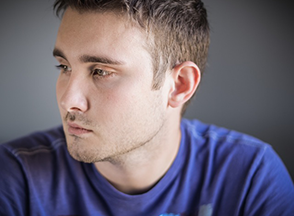When Your Partner Has an Addiction
Home / Married / Coping With Problems and Challenges

You may have known it for a long time, or the reality may just be hitting you. No matter what the situation, when your partner has an addiction to alcohol or drugs, it can be devastating. The spouse of a person with addiction may face many difficult issues, including:
- Shame or guilt about their partner’s behavior
- The pain of increased fighting and arguing
- Inability to rely on their partner to take care of his or her roles and responsibilities
- Fear and worry for, or even of, their partner
- Sadness or anger over the losses in the relationship
It may come as no surprise that addiction is one of the most common reasons that marriages end in divorce. It’s also one of the most common motivations for couples to seek counseling.
Ideally, someone struggling with addiction will be able to face up to the problem and enter rehab or treatment. However, as many partners know, this may take a long time to happen…and it is often far from the end of the story. There may be relapses along the way. Even if recovery occurs, things are likely to be quite different than they once were.
8 Things to Keep in Mind
If you love someone with addiction, the journey will be very challenging for you as well. However, there is hope, and help. Experts and those who have worked with couples facing addiction offer these eight suggestions to keep in mind.
- Be aware that other problems often accompany addiction.
Addiction frequently arises as a way of coping with other problems, such as anxiety, depression, or underlying trauma. It may be the case that your partner cannot heal from his or her addiction without addressing these underlying issues.
- Know that you cannot “fix” him or her.
Addiction sometimes calls for assertive actions to ensure a person’s safety and well-being. However, in the end, it is up to the addicted person whether or not to recover, and it is not your fault if he or she does not. This can be very hard to accept, but it is important.
- Try not to take their behavior personally.
Your partner’s behavior is not about you, nor is it intended to cause you pain. In fact, although this may also be hurtful, he or she will probably be very self-absorbed while coping with addiction.
- Watch out for enabling.
You may have been unintentionally enabling your spouse or partner by shielding them from the consequences of their actions. Though this can be very tempting, it may mean that your partner never faces the reality of their addiction.
- Consider getting help for yourself.
Support groups like Al-Anon and Nar-Anon (among others) provide invaluable support for spouses and partners of people with addiction, and can make all the difference. Consider individual therapy as well.
- Be positive when things are going well.
Your partner needs your love and affirmation when he or she is making the choice not to use and abuse alcohol or drugs.
- Think about creating new routines.
Old friends, old routines, and old situations all may trigger your partner’s desire to use and abuse substances. In many cases, you can help him or her by building new habits and new relationships together as a couple.
- Don’t expect things to go back to “how they were.”
Addiction and recovery are lifechanging experiences. Expect your partner and your relationship to be different afterwards. There may also be underlying issues in your relationship that come to the surface during treatment.
- Remember to prepare for life after treatment.
It may sometimes be hard to remember to plan for a life after addiction, but this is the ultimate goal! Sit together and make plans for your future. Build new dreams and think about new goals. With courage, love, and persistence, you have the rest of your lives together.
Looking for a treatment center or program near you? Try the Substance Abuse and Mental Health Administration’s Behavioral Health Treatment Services Locator, or call their national helpline at 1-800-662-HELP. For more on what to do if a loved one has problems with drugs and alcohol, visit this page.
By Carol Church, lead writer, SMART Couples, Department of Family, Youth and Community Sciences, University of Florida
References
Addiction.com. (n.d.) Partner/spouse. Retrieved from https://www.addiction.com/in-recovery/relationships/partner-spouse/
National Council on Alcoholism and Drug Dependence. (2015). Helping a family member or friend. Retrieved from http://ncaddms.org/
National Healthy Marriage Resource Center. (2011) When your partner is struggling with an addiction: 10 tips to build resilience and begin healing. Retrieved from http://www.healthymarriageinfo.org/resource-detail/index.aspx?rid=3732
Sack, D. (2017). 7 truths if someone you love is addicted. Retrieved from https://www.psychologytoday.com/blog/where-science-meets-the-steps/201701/7-truths-if-someone-you-love-is-addicted
Return to Topic: Coping With Problems and Challenges


